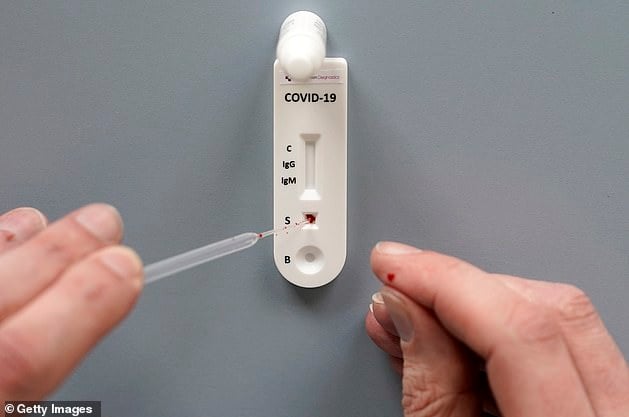Self-diagnosis for COVID-19
The novel coronavirus has infected almost one million people and killed tens of thousands on nearly every continent. Even with offices shut down, people staying at home and hospitals bracing for an influx of patients, the pandemic continues its spread. Moreover, scientists from Columbia University frustratingly found that infected people with no significant symptoms helped fuel the COVID-19 pandemic. "These undocumented infections often experience mild, limited or no symptoms and hence go unrecognized, and, depending on their contagiousness and numbers, can expose a far greater portion of the population to virus than would otherwise occur," the authors said.

Given that there is no specific medicine to prevent or treat COVID-19, most countries in the world have realized that the most effective way to contain the pandemic spread is the quarantine of all infected people. However, limited medical resources cannot fulfill all COVID-19 testing and leave no one missed, especially for people without symptoms. Right now, the majority of COVID-19 tests are real-time polymerase chain reaction tests (RT-PCR) to detect viral nucleotide. Nucleic acid tests are relatively accurate, and the latest assay platform can obtain results quickly, making the detection a real point-of-care (POC) test. However, trained medical personnel and specialized lab devices are needed. Another POC test called antibody tests was also developed to screen infected individuals. Patients with infection may generate detectable pathogen-specific antibodies (IgM and IgG) after 7-10 days. Therefore, blood samples showing positive IgG or IgM to the novel coronavirus indicate infections. Notably, as immune responses are variable in different individuals, it's not simply to say that the negative result from antibody tests indicates "no infection". It is conceivable that antibody tests are more suitable to check the post-infection status rather than to screen for suspected infections.

With the rapid increase of coronavirus infections, many healthcare systems are almost one step away from collapse. POC tests that do not need special instruments and trained personals will dramatically help our doctors to focus more of their time on taking care of real COVID-19 patients. Antigen tests that came out recently can directly detect viral antigens and are designed for home use. Suspected individuals can collect samples and run the test by themselves. It works kind of like a pregnancy test. The entire process takes 15 minutes, and no trained personnel or special devices are needed. This test is dependent on high-quality monoclonal antibodies to a part of the COVID-19 virus. In the face of the global pandemic, many research-driven biotech companies foresee the demand and have successfully manufactured the corresponding antibodies. Their efforts make the antigen tests available and eventually benefit our human society.
